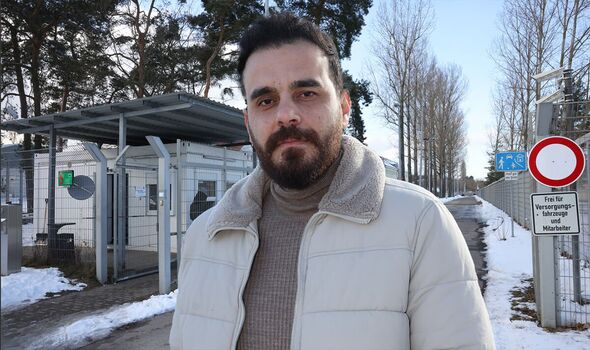Migrants are making plans to travel to the UK after German politicians revealed plans for a giant deportation centre on the Polish border.
Katrin Lange, Interior Minister for the state of Brandenburg, told German newspaper Bild earlier this week that her government would create a “departure centre” in Eisenhüttenstadt.
The new facility would speed up the process of removing asylum seekers who had submitted claims for international protection in other parts of the EU and then arrived in Germany.
Ahead of German federal elections on Sunday, in which a hard-right party is expected to come second for the first time since the Second World War, the Express has been taking the political temperature in the former EU powerhouse.
If polling is correct, around one in five voters may be planning to cast their votes for the Alternative for Germany Party or AfD. Whoever ultimately wins, many German voters are demanding a shake-up of immigration and tougher borders amid the ongoing war in Ukraine.
The Express spoke to migrants staying at an existing camp in Eisenhüttenstadt and learned that some are already planning to travel to other countries. That process may now be speeded up if Germany does get tougher on migrants.
Khalid from Syria said he wanted to remain in Germany and seek asylum, but may reconsider thanks to the poor living conditions.
“Our situation is very bad here,” said the migrant, who traveled through Bulgaria, Greece and Turkey to get to Germany. “People talk together and say, ‘We cannot stay here, it is very bad and disgusting.’ Some choose to travel to another country. I don’t have the experience in the UK, but I have heard that the situation is often better than Germany. You can work faster and English is easier [to learn] than Germany. Maybe [it’s better in Britain] because the immigration numbers are not as big.
“[But] people keep it a secret [if they are planning to go] as they know they will be going illegally.”
Waseem, from Pakistan, applied to come to the UK legally with his wife but was rejected. He said two other families from his homeland had also turned down but remained steadfast in their intention to travel to Britain. Asked whether that meant they were going by small boat he replied: “Maybe.”
The Express tried to speak with the two groups, but they refused because they were currently seeking refuge in Germany.
